Greening the food systems in the EU
15.09.2022 10:44:59
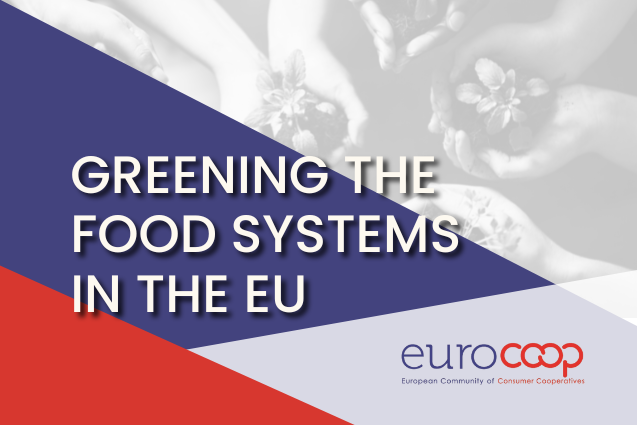
After decades of neglecting how our food was produced and at which environmental and social costs, it is now generally recognized that agriculture and farming are amongst the leading driving factors for chemical pollution, habitat and biodiversity loss, water wastage and GHGs emissions. The progressive globalization and competition of the food market has led food industries to for costs reduction, too often,at the expense of human and environmental health and rights. The use of chemicals such as fertilizers and biocides (i.e. pesticides, herbicides, fungicides) triggers surface and groundwater contamination causing serious environmental and human health concerns.
Although more recent statistics showed a slight reduction in the use and risk of pesticides during the last two years, in the EU over 350,000 tons of pesticides still are applied on crops each year. Groundwater contamination threatens the availability of drinking water, which is already under threat by overexploitation of wells and by climate change that affects the replenishment pathways (i.e. reduction on glaciers' extension and thickness, reduction of winter snow coverage, concentration of heavy rains in short timeframe causing increasing water run-off and less water to reach the underground wells).
Overall, intensive agriculture is responsible for 21-37% of the total anthropogenic emissions of GHGs and, in the EU alone, it accounts for about 11%. Animal farming represents the largest source of GHGs in agriculture with feed digestion accounting for the 78% of livestock emissions with the remaining 22% originating from manure storage. Beef and dairy cows account for 77% of livestock emissions, and the current measured trend does not indicate any meaningful reduction.1 Furthermore, the use of nitrogen fertilizers leads to the release of nitrous oxide (N2O), a greenhouse gas 300 times more powerful than CO2. N2O emissions from agriculture account for some 43% of the sector and 3.9% of total anthropogenic emissions in the EU.
Nonetheless, consumers are progressively becoming aware of the importance of food safety and quality as shown by organic products’ increasing market share since the onset of the pandemic. With a surface increase of approximately 56% between 2012 and 2020, the organic farming market is showing a steady growth.
In 2020, Europe's organic products sales reached € 52 billion (from € 45 billion the previous year), while in the EU it grew to € 44,8 billion from € 41,4 billion in 2019, making its market the second largest worldwide after the USA. The EU Commission has already set the goals to cut 50% in pesticide use and risk, 30% in nitrogen deposition, and increase organic farming to cover 25% of arable land usage by 2030.
Although certainly positive steps toward the greening of the food systems, those measures prove insufficient to fully address the entire environmental and social dimension of food production and consumption. Undeniably, increasing the organic farmland and production shall offer environmental and health advantages by drastically reducing the chemical input during all stages of food production, although we must consider the likelihood that they could still have negative impacts on water and energy consumption or GHG emissions.
Furthermore, organic products don’t offer necessarily any guarantee on the social aspects of food production. Seasonal workers employed in agriculture are amongst the less safeguarded in terms of social security, working and living conditions, health protection and assistance as well as salary. Any sustainable food production system should necessarily cover those aspects along with the environmental externalities while ensuring the economic affordability of sustainable food products.
It is worth elaborating further on what we should expect from the economic dimension of a future sustainable food system. Producing food in a more environmentally sustainable way brings some extra costs linked to the lack of chemical inputs, higher surface required to grow vegetables and raise animals and higher labor intensity. Those actions can be categorized as internalization of the costs of the negative environmental externalities. In other words, from the onset farmers bear extra costs to avoid the environmental and human health risks posed by chemical inputs in intensive agriculture, but those costs are then passed over to the final consumer.
Broadening the concept of sustainability to include other environmental aspects (i.e. GHGs emissions, water and energy consumption, animal welfare standards) and minimum social requirements (i.e. working conditions, wage, health and housing of seasonal workers) is likely to cause a further rise in the production costs.
Although the general trend of organic products indicates that consumers are willing to pay a higher price for healthier food, a further increase in prices might slow down that trend. On the other hand, as long as the cheapest, less sustainable products are present on the market, and heavily promoted, we risk sustainable food becoming a feed for a market niche unable to expand further. This is the reason why the affordability of sustainable food for the large population would be extremely important. On that regard, we share the view of the EU Commission that the largest EU funding sources to food production (i.e. the Common Agriculture Policy and the Common Fishery Policy) need to be oriented in supporting the transformation of the food systems.
Unfortunately, despite the intentions and efforts to link direct and indirect payments to environmental performances, still the largest amount of money is likely to fund intensive farming practices. Furthermore, Member States have a large room to fulfill the environmental requirements with a number of solutions not all of which are likely to be effective. (See i.e. BES Journal).
Despite the Commission’s willingness to designate at least 40% of CAP expenditure in direct payments to climate-friendly farming practice, it lacks of any clear indication on the actions needed to reach that goal and doesn’t prevent possible funding of farming practices linked to high GHGs emissions. After almost 3 years long negotiation among co-legislators, the new CAP starting in January 2023 risks not being fit for the purpose of adequately supporting the shift needed to compensate higher production costs linked to sustainable food production.
It could be possible, in a near future, that farmers could integrate their revenues by adopting ”carbon farming” practices aimed at increasing GHGs sinks. In fact, raising carbon sinks is intimately linked with the concept of ”zero-net emissions” a guiding principle of the EU climate action. That means that, by 2050, total GHGs emissions in the EU, shall be compensated by an equal amount of removing the same amount of GHGs being sequestered, possibly but not exclusively, in natural systems.
Although the actual pace at which climate change is unfurling would require an increase of atmospheric carbon sequestration into natural systems, the criticalities of carbon farming remain high. First of all, there is a need for a guarantee of long-term sequestration and, as a consequence, a shared strong methodology to measure the final carbon balance of carbon farming. Second, any new form of farming set-up for carbon sequestration should ensure natural biodiversity and ecosystems preservation and expansion as an integral part of the measures. Thirdly, but more importantly, there is a need to differentiate between atmospheric carbon sequestration and mitigation actions (i.e. avoiding the production and release of GHGs).
According to recent findings published on Nature Climate Change, in fact, carbon removal is less efficient at reducing atmospheric CO2 concentration than avoided emissions are. This asymmetry in carbon cycle response adds up an additional level of difficulty to implement a correct and meaningful carbon farming policy.
From all the above-mentioned considerations, the largest financial instrument available to support the transition towards a more sustainable food system in EU is likely to be insufficent and well focused on those actions that might incentivate farmers in shifting to more sustainable production systems. On the other hand, focus and resources could be channeled to further support existing agricultural practices like agroecology but even that alone ’wouldn’t be enough.
As any complex problem, shifting toward sustainable food systems requires a complex and multifactorial solution that goes beyond agriculture practices and technologies alone. A recent modeling study concluded that consumption of locally grown organic products could help in delivering all the goals of sustainability only if accompanied by a change in dietary habits and preventing food loss. According to the authors, the results of economic modeling showed a need for drastic changes in consumer preferences towards more plant-based, agroecological and local foods, and for improvements in technology.
Nonetheless, it is worth remembering that some technologies push forward by the Commission and the large part of the scientific community are now under scrutiny and are raising some doubts. In particular, New Genomic Techniques (NGTs) are aimed at replacing old Genetically Modified Organism (OGM) in producing tailored species that would help tackling a large number of environmental criticalities in agriculture and not only. In particular, Commission seems to be oriented towards recognizing plant varieties obtained by some NGTs as non-GMOs and thus not subjected to same legislation that foresees an approval procedure, labelling rules and a monitoring plan involving national competent authorities.
Apart from technical remarks on whether NGTs can be really considered differently by old GMOs, there are two general aspects that need to be considered. The first is that organic farming explicitly excludes the presence of GMOs and this is proven through a certification that is possible because of the control system in place. If NGTs products will be allowed to be grown and marketed outside the existing GMO legislation, the organic and GE-free markets, mostly active in the EU, are likely to pay severe drawbacks. Furthermore, NGTs are not fit for the purpose to sustain local agroecology farming practices as they could be traced to the unsustainable and intensive food production system.
Transforming the food system requires more than a technical fix, or switch, and the economic model at the base of the ongoing system has to be put into question.
The current value chain must not be optimised. We must rethink, redefine and restructure the chain from a linear to a circular concpet and to expand the underlying aspects of system “value” so it includes the principles of societal and environmental benefits along with that of simple economic profit, as it is at the moment.
Would it be possible to claim any food system as sustainable where staple grains are exposed to financial speculation at the Seeds Stock Exchange or when patents are granted for plant and animal varieties including those obtained through natural cross-breeding practices? Such askew practices are implemented to further simple economic gain, or value, without due societal and environamental considerations. On the other hand, sustainable and responsible consumption is urgently needed to reduce the large amount of food waste and loss (FWL) that still represents around 20% of the total quantity produced in EU.
It’s estimated that some 88 million/t of food waste, both eatable and not is generated at household level each year in the EU which is accountable for 8-10% of total global greenhouse gas emissions and bears an associated economic cost of around € 143 billion. Wasting food not only has high environmental and economic impacts but it is also highly immoral when considering that over 36 million of EU citizens cannot afford quality meal every two days.
Finally, but not less importantly, it’s worth remembering that a sustainable food production system should also ensure respecting social aspects and labour rights, which are sometimes neglected even by organic farming. Especially in this time of crisis, it would be wise to start a holistic reflection on the state of our food system and focus on the fact that cheap food, agriculture commoditization, plant patenting and seed market financial speculation are at the root of most social and environmental failures in the sector. A committed sustainable food policy at EU level should include the entire package, and legislators should take bold and robust action to ensure food production is safe, sustainable, accessible, not commoditized and shielded from financial speculation.
Consumers need to be properly informed on the sustainability of their purchases through an EU-wide harmonized, multifactorial and clear labelling.
The research should be conducted in a way to support scientific advancement through open-source projects and databases, such as Wheat MAS in the USA looking for a wider share of benefits to come from the sustainable use of biotechnologies and knowledge in molecular biology and genetics.
Considering all its criticalities, it is clear that the food system would benefit from “rethinking”, rather than “optimizing” ongoing practices, giving room to social values to prevail over pure financial benefits. Therefore, we are convinced that the economic model applied to food chain production plays a significant role in the final food market features.
The Co-operative economic model could offer higher guarantees of worker rights, shared benefits, equality and holistic sustainability, because the core business operations are based on principles and led by values, thereby maximizing benefits for the individual consumer-members (who are the owners of the business) and their communities, while being economically viable.
Consumer co-operatives have been at the forefront in adopting frontrunner measures which are always steps ahead of the strict legislation requirements on food safety and sustainability. Being owned by consumers, co-ops have a direct and strong interest in ensuring food safety and sustainability. This is why Euro Coop strongly supports the call for the Commission to keep on track and ensure the EU food production resilience by raising sustainability ambitions even further in a crisis period which exposes the EU Bloc’s vulnerabilities.
In this regard, it is important to highlight some actions and programs on sustainable food system carried out by some of our consumer co-operative members:
 The Sustainability Declaration of Coop Sweden
The Sustainability Declaration of Coop Sweden
 The 2021 Sustainability Annual Report of Coop Finland
The 2021 Sustainability Annual Report of Coop Finland
 The 2021 Sustainability Annual Report of Coop UK
The 2021 Sustainability Annual Report of Coop UK
 Eroski (Spain) actions and program on sustainability
Eroski (Spain) actions and program on sustainability
 Coop Italy activities for the environment (in Italian)
Coop Italy activities for the environment (in Italian)
1 European Commission, Inception Impact Assessment on the Sustainable Food System Framework Initiative, 2021.
 By the second half of 2023, the EU Commission will publish its final Impact Assessment on the Framework for Sustainable Food Systems that will accompany the relative legislative proposal. It will lay down general principles and objectives, together with the requirements and responsibilities of all actors in the EU food system including sustainable labeling of food products, minimum criteria for sustainable public procurement of food, governance, and monitoring.
By the second half of 2023, the EU Commission will publish its final Impact Assessment on the Framework for Sustainable Food Systems that will accompany the relative legislative proposal. It will lay down general principles and objectives, together with the requirements and responsibilities of all actors in the EU food system including sustainable labeling of food products, minimum criteria for sustainable public procurement of food, governance, and monitoring.
It is now possible for stakeholders to fill out the survey launched by the EU Commission. If you would like to take part in this initiative, please follow this link by 26 September the next.
For more information, please contact:
Fabrizio Fabbri
Sustainability Policy Manager
email: [email protected]
Latest Food Policy news
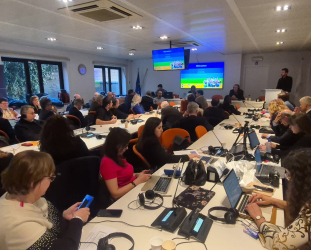
Cooperatives Driving Change: Key Events in Brussels, March 2025
As part of the International Year of Cooperatives, a series of impactful events took place in...
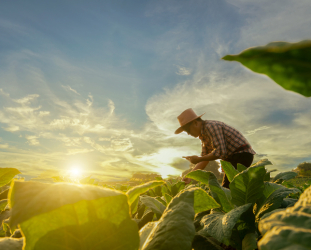
EU Deregulation of New GMOs: A Blow to Consumer Rights and Transparency
EU Member States voted in favour of deregulating new genetic techniques (NGTs) , exempting...
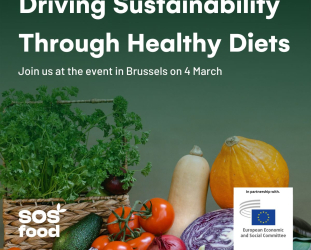
Join us at the EESC for the "Driving sustainability through healthy diets" Conference
Euro Coop is pleased to invite you to the "Driving sustainability through healthy...
Latest Food Policy stories
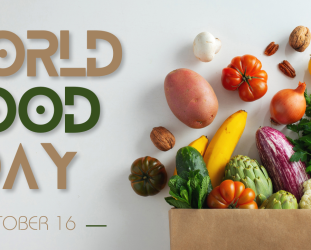
World Food Day 2023: Consumer Co-ops for Sustainable and Equitable Food Systems
As we come together to observe World Food Day, it is an opportune moment to reflect on the...

